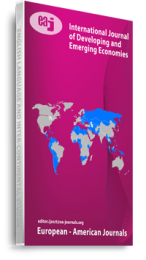This study empirically examined the effect of foreign trade and external reserves in Nigeria. The objectives of the study were to; examine the impact of oil import, non-oil import, oil export, non-oil export and exchange rate on external reserves in Nigeria. Time series data from 1980 to 2019 was collected from CBN statistical bulletin. The study employed the techniques of ADF unit root test, co-integration and Vector Error Correction Model. The results of the estimated model showed that all the time series were stationary at order one. Also, the model depicted by the co-integration result showed that there is a long run equilibrium relationship among the variables. Similarly, the vector error correction result showed that the coefficient of ECM has the hypothesized negative sign and statistically significant at 5% level. Furthermore, the Vector Error Correction result revealed that oil and non-oil exports impacted positively on external reserves although the impact of non-oil export was insignificant while oil imports, non-oil imports and exchange rate had significant negative impact on external reserves in Nigeria. Specifically, oil export, oil imports, non-oil imports and exchange rate were significant at 5 percent. This implies that they impacted significantly on external reserves in Nigeria during the period covered by the study. In addition, the granger causality test revealed that oil export had a uni-directional causal relationship with external reserve while there was a bi-directional relationship between exchange rate and external reserve. Based on these findings, the study recommended amongst others the diversification of the export base of the nation as a possible measure of improving external reserves in Nigeria. Also, the study suggests that importations be discouraged especially for commoditites that can be produced locally. Finally, the study recommends that the CBN as the custodian of Nigeria’s foreign reserves, stabilize the value of local currency taking into cognizance the external shocks that stem from exchange rate volatilities.
Keywords: Foreign Trade, Nigeria, VECM, external reserves

